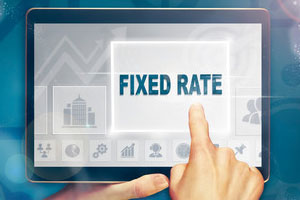Tracker Rate Mortgages
A tracker mortgage “tracks” a base rate, which is the Bank of England’s base rate.
If you get a tracker mortgage, your mortgage repayments (including the interest you pay on your mortgage) could change every month.
TRACKER RATE MORTGAGES
“Your payments may increase or decrease with a tracker mortgage because you are not locked into a fixed rate.”
What is a Tracker Rate Mortgage?
A tracker mortgage is a kind of variable-rate loan that “tracks” a base rate, often the base rate set by the Bank of England. Your monthly mortgage payments (including the interest you pay) may vary if you obtain a tracker mortgage.
Advantages of getting a tracker mortgage:
If the Bank of England interest rates decrease, so will your repayments unless collar rates have been applied.
- Some lenders might allow you to move to a fixed-term mortgage without charging you a fee if interest rates rise and you choose to do so.
- Your repayments may just be a small amount, and introductory rates may be excellent.
- Compared to other types of mortgage, early repayment fees may be more inexpensive.
What distinguishes a variable mortgage from a tracker mortgage?
A mortgage lender may determine its own variable rate if you have a variable-rate mortgage. A tracker mortgage, however, typically tracks the Bank of England base rate, which they have no control over.
What distinguishes a fixed rate mortgage from a tracker mortgage?
The payments on a fixed rate mortgage remain constant, at least initially. For a limited period of time, fixed-rate mortgages provide an excellent value rate; as a result, they are the best option if you need to successfully plan your budget and want to know how much you will be paying each month.
Throughout the mortgage’s term, your payments won’t increase either, regardless of how high rates rise.
One advantage of tracker mortgages is that if interest rates fall, your mortgage payments will go down with it.
Throughout the mortgage’s term, your payments won’t increase either, regardless of how high rates rise.
One advantage of tracker mortgages is that if interest rates fall, your mortgage payments will go down with it.
Interest rates and tracker mortgages
In general, tracker mortgage rates are set at a level little above the set rate rather than perfectly matching the interest rates they monitor.
Searching for initial offers is a good idea, one such offer is a tracker mortgage that offers the Bank of England’s Base Rate + 1 percent. The rate you would pay would be 1.75 percent if the base rate is currently 0.75 percent.
Below are just a few of the many questions you may or should have, and the Leodis Financial team is well-equipped to walk you through all of your options and guide you through the process of purchasing your next home.
Searching for initial offers is a good idea, one such offer is a tracker mortgage that offers the Bank of England’s Base Rate + 1 percent. The rate you would pay would be 1.75 percent if the base rate is currently 0.75 percent.
Below are just a few of the many questions you may or should have, and the Leodis Financial team is well-equipped to walk you through all of your options and guide you through the process of purchasing your next home.
Need Our Help? Please call us on 01274 028 019
Our UK-based team is ready to assist you throughout the duration of your loan.
Our UK-based team is ready to assist you throughout the duration of your loan.
YOUR HOME MAY BE REPOSSESSED IF YOU DO NOT KEEP UP REPAYMENTS ON YOUR MORTGAGE
Tracker mortgages “track” the base rate set by the Bank of England. If interest rates decrease, your lender will receive smaller payments from you. As interest rates grow, so will your payments!
A tracker mortgage introductory offer may be a great deal for you. However, as was previously noted, the repayment amount may increase or decrease.
It’s crucial to keep in mind that you might never be able to estimate or budget your mortgage payments in advance. If your payments increase, you must ensure that you could still afford your mortgage.
A tracker mortgage introductory offer may be a great deal for you. However, as was previously noted, the repayment amount may increase or decrease.
It’s crucial to keep in mind that you might never be able to estimate or budget your mortgage payments in advance. If your payments increase, you must ensure that you could still afford your mortgage.
In general, you can get a tracker mortgage for a trial term that typically lasts between one and five years, or you can get a lifetime tracker that will last for the duration of your mortgage.
When a tracker mortgage expires, you will typically be switched to the lender’s ordinary variable rate, which could result in higher monthly payments.
This is a wonderful opportunity to shop around and weigh up your options. You can consider refinancing your home with a different tracker mortgage or you might find a fixed-rate offer that fits you.
When a tracker mortgage expires, you will typically be switched to the lender’s ordinary variable rate, which could result in higher monthly payments.
This is a wonderful opportunity to shop around and weigh up your options. You can consider refinancing your home with a different tracker mortgage or you might find a fixed-rate offer that fits you.
A collar rate is now being added to tracker mortgages by an increasing number of lenders. In essence, this means that your rate cannot fall below a predetermined minimum level.
There will be a “collar” on your rate to ensure that it won’t follow interest rates to their lowest point, so if interest rates fall sharply, your monthly mortgage payments won’t also drop immediately.
There will be a “collar” on your rate to ensure that it won’t follow interest rates to their lowest point, so if interest rates fall sharply, your monthly mortgage payments won’t also drop immediately.
If the Bank of England interest rates decrease, so will your repayments unless collar rates have been applied.
- Some lenders might allow you to move to a fixed-term mortgage without charging you a fee if interest rates rise and you choose to do so.
- Your repayments may just be a small amount, and introductory rates may be excellent.
- Compared to other types of mortgage, early repayment fees may be more inexpensive.
- Your monthly payments may go up if the base rate does.
- With collar rates, your mortgage payments won’t decrease even if the base rate hits historic lows because the minimum amount you must pay is capped.
- You can be charged if you refinance during the promotional term or decide to pay off your mortgage in full.
What we do
Our Services

















Have a question?
Get in touch
Help & Guidance
- Mortgage Calculators
- Vehicle Refinance
- Vehicle Finance
- Vehicle Leasing
- Commercial Mortgage
- Bridging Loan
- Buy To Let
- Development Finance
- Second Charge
- First Time Buyer
- Poor Credit Mortage
- Building Insurance
- Mortgage Protection
- Life Assurance
- Business Protection
- Asset Finance
- Capital Release
- Invoice Financing
- FAQs
- Forms
Our Products & Services
- Commercial Finance
- Residential Mortgage
- Homeowner
- Specialist Finance
- Insurance
- Business Finance
- Asset Finance
- Tax Relief
- Invoice Financing
- Vehicle Finance
- Mortgage Calculators
- Vehicle HP Calculator
- Vehicle PCP Calculator
- Mortgage Forms
- Bridging Loan Form
- Buy To Let Forms
- Second Charge Forms
- Commercial Forms
Disclaimer:
Every effort has been made to ensure the accuracy at the time it was written. It is not intended to provide legal advice or suggest a guaranteed outcome as individual situations will differ and the law may have changed since publication.
Readers considering legal action should consult with an experienced lawyer to understand current laws and how they may affect a case.
These Terms apply to your use of our website. If you are not over 18 or not living in the United Kingdom you will not be able to use this website and you should not attempt to make an application, although subject to your acceptance of these Terms you should feel free to browse.
If you do not agree to be bound by the Terms set out below you should not use this website.
If you do not agree to be bound by the Terms set out below you should not use this website.
About Us
We are an established broker working in partnership with selected lenders to bring our clients the financial solution that best suits their needs. From all types of residential or commercial mortgage through to bridging and development finance and onto vehicle, asset and business finance.
Important
YOUR HOME MAY BE REPOSSESSED IF YOU DO NOT KEEP UP REPAYMENTS ON YOUR MORTGAGE
Leodis Financial is a trading style of Leodis Financial Ltd. Directly authorized and regulated by the Financial Conduct Authority. FRN750327. Office: RHS Rebecca House, Bradford. BD1 2RX Registered Company No: 09865671 | Registered in England and Wales.
2022 – © Leodis Financial – All Rights Reserved
